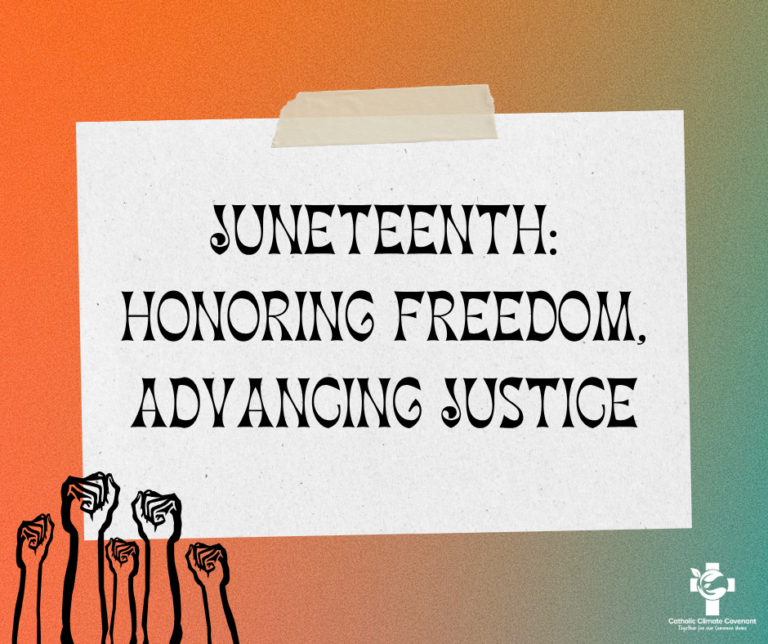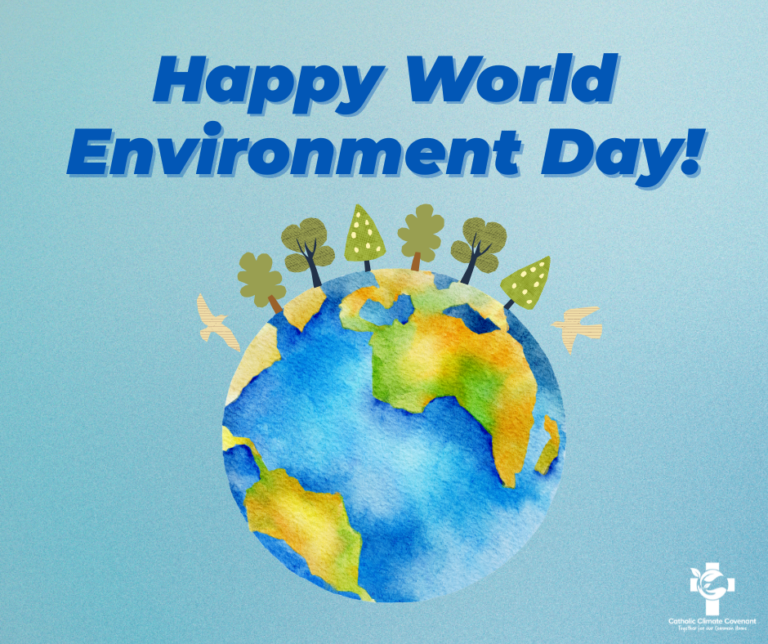On June 19th, we commemorate Juneteenth — the day in 1865 when enslaved African Americans in Galveston, Texas, finally learned of their freedom, over two years after the signing of the Emancipation Proclamation. It is a day of both celebration and sober reflection — a moment to honor the resilience of Black communities and confront the ongoing legacy of racial injustice in our society.
As Catholics committed to justice and the care of our common home, Juneteenth invites us to ask: what does true liberation look like today?
We know that the poor and marginalized — who are disproportionately Black, Indigenous, and People of Color (BIPOC) — shoulder the greatest burdens of environmental degradation. Polluted air, unsafe drinking water, exposure to toxic waste, and the destructive impacts of climate change are all too often realities in BIPOC communities. These environmental injustices are not random — they are the result of systemic inequality and a painful continuation of the same structures of oppression that allowed slavery to endure. Catholic Social Teaching requires us to help our brothers and sisters in Christ, and Juneteenth is a reminder of this call.
As Pope Francis teaches in Laudato Si’, “the cry of the earth and the cry of the poor” are one and the same. We cannot claim to care for creation without also working to dismantle the systems that harm vulnerable people. Environmental justice is racial justice. And both are essential to the Gospel’s call to love, liberation, and solidarity.
Juneteenth reminds us that while legal slavery ended, the work of freedom is unfinished. As people of faith, we must continue to walk with and advocate for communities still bound by the chains of poverty, racism, and environmental harm. Through prayer, education, and action, we recommit ourselves to building a more just and sustainable world where all people — and creation itself — can flourish in the freedom God intends.



